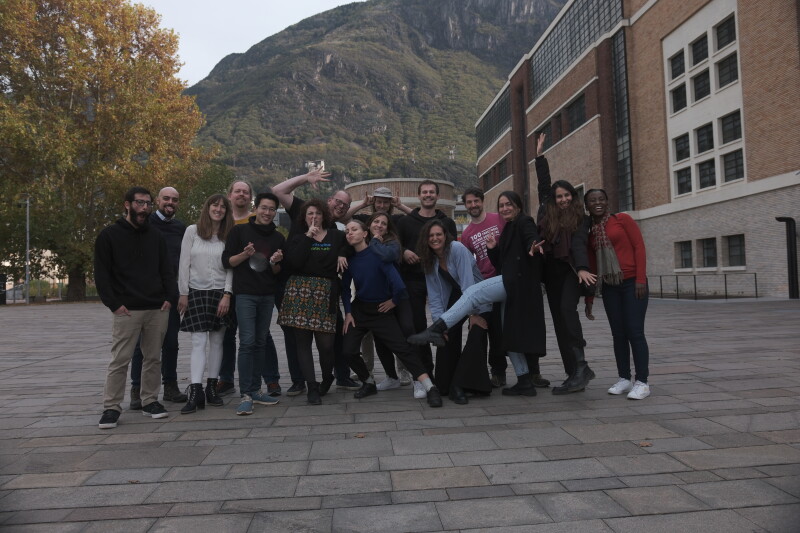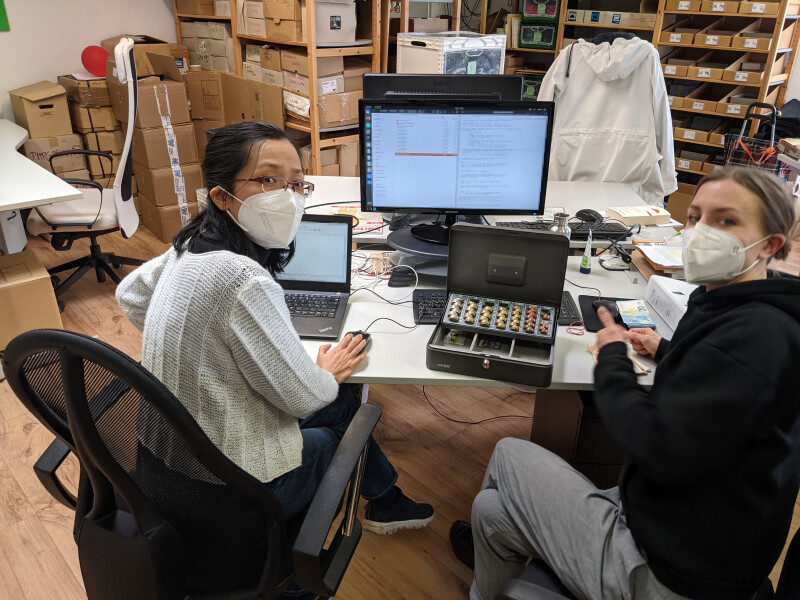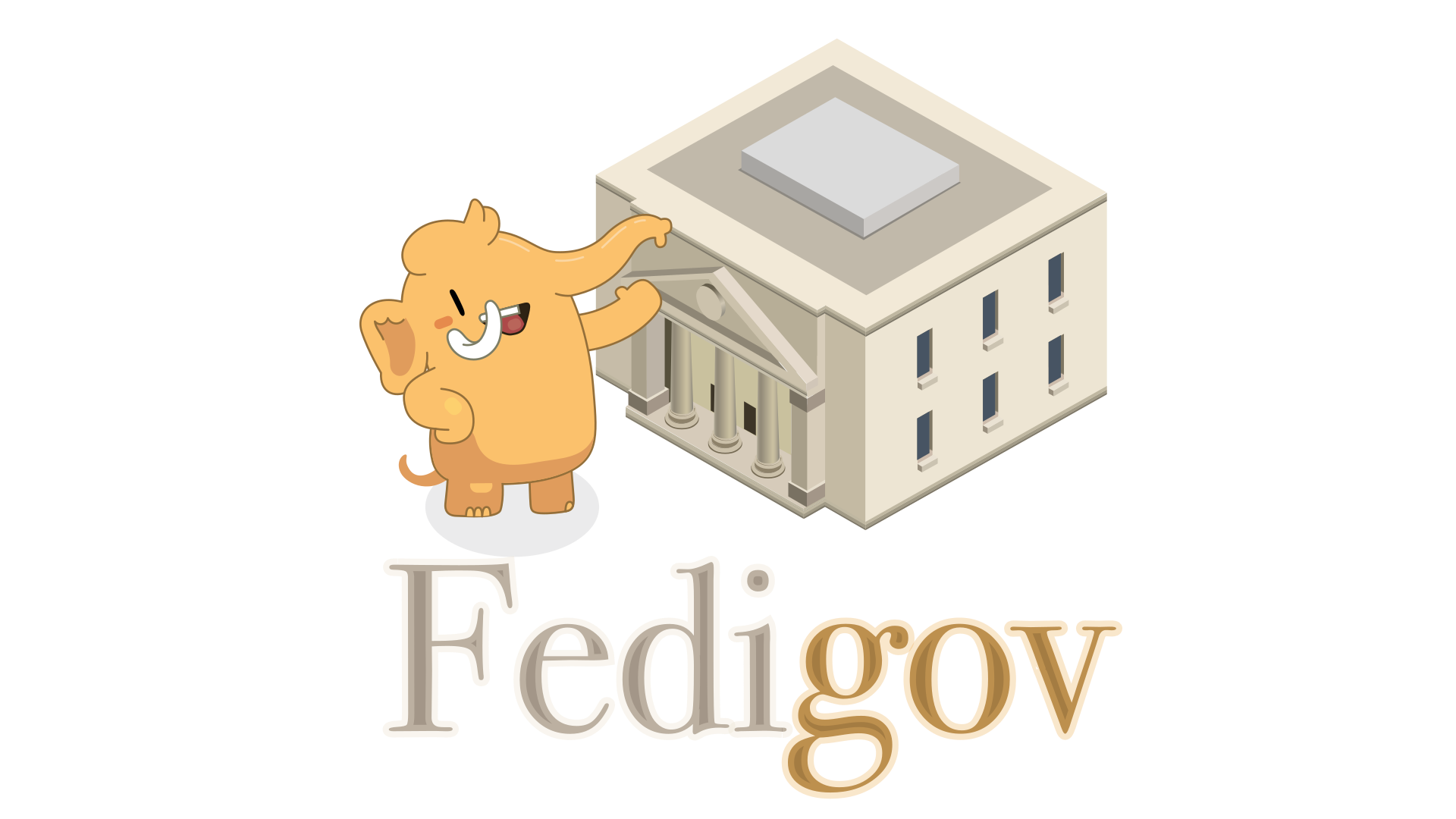FSFE is hiring an office coordinator
We are looking for an office coordinator for 25-35 hours per week in our
Berlin office. As part of our office management team you will be the
administrative backbone of our operations. Our ideal candidate has experience
as an office administrator, secretary, event organiser, or another relevant
administrative role.
About the FSFE
Free Software Foundation Europe is a charity that empowers users to control
technology. Software is deeply involved in all aspects of our lives and it is
important that technology empowers rather than restricts us. Free Software gives everybody the rights to use,
understand, share, and improve software. These rights help support other
fundamental freedoms like freedom of speech, press, and privacy.
The FSFE helps individuals and organisations to understand how Free Software
contributes to freedom, transparency, and self-determination. We enhance
users' rights by abolishing barriers to Free Software adoption, encourage
people to use and develop Free Software, and provide resources to enable
everyone to further promote Free Software in Europe.
We are involved in many activities in the
legal, economic, political and technical areas around Free Software.
Our work is made possible by a community of volunteers, supporters,
donors, and staff.

We are a distributed team of dedicated volunteers and employees from all
around the world united in the spirit to empower users to control technology.
We know it will take a long time to achieve our mission, but we know we can
just achieve it together and with persistence step by step. As a family
friendly organisation we can offer flexible working hours.
Main responsibilities
- Reviewing financial documents, preparing them for accounting, and general (mainly electronic) filing.
- Communication with our salary service, health insurance, bank, insurances, and other authorities.
- Handle sourcing vendors, (re)-ordering, organising, invoicing, shipping, and the inventory for our information material and merchandise.
- Manage office equipment including organising smaller and bigger office supplies, assets inventory, and key management.
- Paying invoices and salaries as well as travel expense claims.
- Issue outgoing invoices and monitor incoming payments.
- Organise, store, and print organisational documents as needed.
- Prepare financial reports and presentations
- Help to constantly improve our administrative processes.
Qualifications
- Proven experience as an administrator, administrative assistant, office coordinator or another related role.
- Basic knowledge of accounting and tax law.
- Knowledge and experience in understanding the financial side of the charitable non-profit sector are an advantage.
- Fluency in written and spoken German, intermediate command of written and spoken English; other European languages are considered an asset.
- Knowledge of how to handle the administrative side of EU-funded projects are a plus.
- Familiarity with office equipment and office management tools (Free Software tools are a plus).

Attitude
We are looking for a reliable, well-organised, and punctual team player with
a problem-solving attitude and an eye for detail who would like to strengthen
our administrative backbone in Berlin, so that the many people in the FSFE
can continue to empower users to control technology.

How to apply
To apply, please send a maximum one-page cover letter -- including
the desired hours per week -- and a maximum two-page CV (only PDFs
are accepted) by email to jobs@fsfe.org, with
the subject "organisational wizard". Please do not include pictures of
yourself in the application.
Your personal data will be deleted 3 months after we have made our
decision. The closing date for applications is Sunday 15 January
2023.
Free Software is meant to serve everyone regardless of their age,
ability or disability, gender identity, sex, race, religion or
sexual orientation. Hence, we encourage applications from all
backgrounds and promise to judge all applications on merit, without
reference to any of the characteristics listed. To promote diversity
and equality in the Free Software community, we shall give preference
to applicants who identify as part of a traditionally marginalised
demographic in technology for applications of equal strength.
Support FSFE





